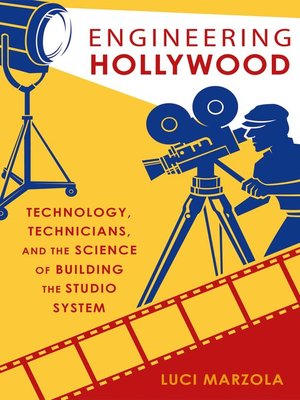Engineering Hollywood
ebook ∣ Technology, Technicians, and the Science of Building the Studio System
By Luci Marzola

Sign up to save your library
With an OverDrive account, you can save your favorite libraries for at-a-glance information about availability. Find out more about OverDrive accounts.
Find this title in Libby, the library reading app by OverDrive.



Search for a digital library with this title
Title found at these libraries:
| Library Name | Distance |
|---|---|
| Loading... |
Engineering Hollywood tells the story of the formation of the Hollywood studio system not as the product of a genius producer, but as an industry that brought together creative practices and myriad cutting-edge technologies in ways that had never been seen before. Using extensive archival research, this book examines the role of technicians, engineers, and trade organizations in creating a stable technological infrastructure on which the studio system rested for decades. Here, the studio system is seen as a technology-dependent business with connections to the larger American industrial world. By focusing on the role played by technology, we see a new map of the studio system beyond the backlots of Los Angeles and the front offices in New York. In this study, Hollywood includes the labs of industrial manufacturers, the sales routes of independent firms, the garages of tinkerers, and the clubhouses of technicians' societies. Rather than focusing on the technical improvements in any particular motion picture tool, this book centers on the larger systems and infrastructures for dealing with technology in this creative industry. Engineering Hollywood argues that the American industry was stabilized and able to dominate the motion picture field for decades through collaboration over technologies of everyday use. Hollywood's relationship to its essential technology was fundamentally one of interdependence and cooperation-with manufacturers, trade organizations, and the competing studios. As such, Hollywood could be defined as an industry by participation in a closed system of cooperation that allowed a select group of producers and manufacturers to dominate the motion picture business for decades.







